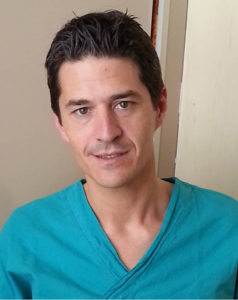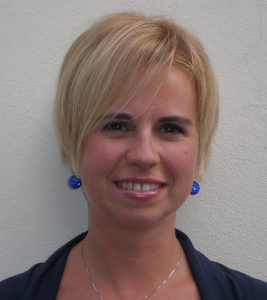 For the upcoming MIOLive symposium, we had the idea of introducing a special “ten commandments” session for ablation, chemoembolization, and radioembolization, to create a practical handbook for the interventional radiologist who approaches liver interventions, write Roberto Iezzi, Rome, Italy and Laura Crocetti, Pisa, Italy. They give Interventional News readers a preview of the first five commandments.
For the upcoming MIOLive symposium, we had the idea of introducing a special “ten commandments” session for ablation, chemoembolization, and radioembolization, to create a practical handbook for the interventional radiologist who approaches liver interventions, write Roberto Iezzi, Rome, Italy and Laura Crocetti, Pisa, Italy. They give Interventional News readers a preview of the first five commandments.
The second edition of Mediterranean Interventional Oncology Live (MIOLive 2017) symposium is to be held 30–31 January, Rome, Italy.
Discuss your case in a multidisciplinary tumour board
The indication for ablation of a liver lesion should come from a multidisciplinary tumour board discussion and should be clearly decided in a shared manner by an interventional radiologist, oncologist, hepatologist and liver surgeon. Multidisciplinary evaluation will take into consideration the specificities of the patient beyond liver tumour burden, such as comorbidities, compliance to treatment, general performance status, and history of the disease. These features are of growing importance considering that oncological patients often share a very long history of disease. In fact multiple therapies, including locoregional and systemic ones, should be applied and combined, always in line with the view that every patient really is unique.
Be up-to-date with the literature
You will likely encounter colleagues saying that what you are doing is not proven or that there is something else that works better. Know the current guidelines and results of high-impact studies—this will help you to support your work. Moreover, this will prevent you, especially at the beginning of your practice, from treating the wrong patients. These could include patients with disease that is too advanced, or those with histotypes of tumours that will not benefit from ablation. It is very important to have good results, not only for the patients, but to also support and spread ablation techniques.
A successful case is the best advertisement
Do not start liver ablation with a difficult case. If you are starting your ablation training or testing a new ablative technique, choose easy cases at first. If the first cases go wrong, it will be difficult to continue. If you are doubtful about selecting a case, ask for advice from more experienced colleagues. Companies are also willing to provide beginners with proctors so that you can adequately prepare in order to be successful.
Remember that you are part of a team
When performing an ablation you need to cooperate with the anaesthesiologist, the nurse and the technician. You need to confer with the anaesthesiologist and outline exactly what you need, ie., general anaesthesia or deep intravenous sedation, depending on whether you need the patient to be cooperative at the beginning of the procedure or to sleep through the duration. The technician and nurse should be trained by the physician and experienced colleagues to be ready to provide assistance in all the phases of the procedure.
Consider the possible complications
The knowledge of possible complications will help you to avoid them. Each ablative technique, especially thermal ablative techniques, can lead to complications. The rate of puncture-related complications can be reduced by checking the coagulation status of the patients and choosing the most appropriate path to safely reach the nodule. Thermal energy-related complications can be avoided in most cases by using adjunctive procedures (ie., hydrodissection) to protect the organs or structures at risk of damage by heating.
We have disclosed five of the 10 commandments for ablation—for the rest, we welcome you to Rome.
 Roberto Iezzi is an interventional radiologist, Catholic University, Rome, Italy and Laura Crocetti is an interventional radiologist, University of Pisa, Pisa, Italy. MIOLive 2017 will focus on liver-directed therapy for hepatic malignancies. It will be a practical, interactive meeting based on live cases and short presentations and lectures, in which professionals from various countries from the Mediterranean area will have the opportunity to share experiences, research projects and valued mentoring from international experts
Roberto Iezzi is an interventional radiologist, Catholic University, Rome, Italy and Laura Crocetti is an interventional radiologist, University of Pisa, Pisa, Italy. MIOLive 2017 will focus on liver-directed therapy for hepatic malignancies. It will be a practical, interactive meeting based on live cases and short presentations and lectures, in which professionals from various countries from the Mediterranean area will have the opportunity to share experiences, research projects and valued mentoring from international experts










